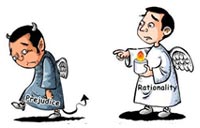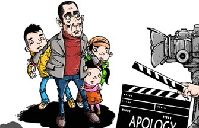Thumbs up for hands-on knowledge
|
|
 |
 |
The biggest stumbling block, as I see it, is traditional ways of thinking. China's education is built on the notion that one is armed with a sufficient cache of knowledge to be eligible for officialdom. This dates back 2,000 years to when Confucius actively sought to provide counsel to various state rulers. The Tang Dynasty (AD 618-907) poet Li Bai was not content with being a celebrated man of letters; he wanted to use his literary achievements as a means to break into politics.
This line of thinking is alive and well if you care to glance at any alumni book from the major universities in today's China. Officials and statesmen and stateswomen of high ranking are always listed most prominently.
Ironically, Confucius and Li Bai would have received positions that now correspond to official ranks. The academic world is often said to be an ivory tower, but actually it is more like a parallel world, with an emphasis on the decision maker rather than the implementer. The former is regarded as the brain with knowledge whereas the latter is seen as the footman with hands-on skills. In the Confucian value system, the former tends to rule and the latter tends to be ruled.
In the Chinese language, to be educated is often equated with reading books. Leonardo da Vinci would probably not be held in esteem in ancient China because he spent so much time observing the world and making discoveries instead of reciting classics and showing off that erudition in poetry. (John Milton would be a paragon of great learning.)
When that cultural preference is translated into education, it determines the hierarchy of disciplines. Humanities and social sciences become fertile ground for fostering those who rule and thereby attract applicants with high scores. The recent generation of state leaders with technology backgrounds has helped shift the balance a little toward that of the doer. But it has not completely changed the mindset simply because their education is perceived as a springboard, rather than a necessity, for their success.
If you believe that the disparity is at least good for humanities and social sciences, you're dead wrong. It only implies these disciplines will attract the wrong crowd, those who are not innately interested in such knowledge but want to use them to move up the social ladder. And it also means disciplines with professional goals are often given short shrift.

















